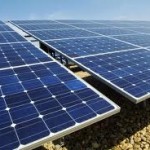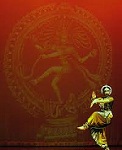 P.R. Sarkar
P.R. Sarkar
A developed economy should consist of four parts – people’s economy, psycho-economy, commercial economy and general economy. This quadri-dimension of the economy is a vast expansion on the contemporary and co-contemporary conceptions of economic activity. Most economists today understand only a little of the principles of general economy and something of commercial economy, but both of these parts …
All posts by Prabhakar
Proper Utilization
 From Samaj, a New Dimension on Politics, published by Proutist Universal Global Office.
From Samaj, a New Dimension on Politics, published by Proutist Universal Global Office.
The concept of utilization is not new. However, PROUT’s concept of utilization of all resources is unique. Resources are generally defined as society’s stock of capital, labor, land, mineral wealth, the level of education, knowledge and technology. Sarkar’s concept of resources implies a proper environment conducive …
Progressive Utilization
 Acarya Krsnasevananda Avadhuta
Acarya Krsnasevananda Avadhuta
By its very name PROUT reveals the spirit of its motivation, utilization. To use things, use people, to get everyone, everything and everywhere into the action. And to spread the burden of human need over as many diverse resources, on as many shoulders and over as wide an area as possible. To radiate our demands so they …
Minimum Requirements and Maximum Amenities
 P. R. Sarkar
P. R. Sarkar
There are many attractions in society, and it is the nature of human beings to run after these attractions. Communism exploited this human tendency by promising to give equal wealth to all. But the mundane resources in the world are limited, so is it possible to provide equal wealth to all? No, and the attempt to do …
Laws of Social Dynamics
P.R. Sarkar
The existence of the relative factors of time, space and person is substantiated in the field of cognition and the cognizant bearing in its inertness is the highest stance of these factors. The inherent dynamically of an entity, depending on the existential collaboration of another entity (or in certain cases, of other entities, in which case immobility becomes …
Dynamic Balance (Prama)
 P.R. Sarkar
P.R. Sarkar
In the primordial phase of creation, the three attributional principles of the Cosmic force of creation evolve countless geometric figures which all eventually get transformed into triangles of forces (gunatrikona in Sanskrit):
Trigunátmiká srst´imátrká ashesátrikona dhárá.
“Whenever there are more than three forces operating, the tendency is invariably to form a stable triangular figure.”
As long …
Distributions of Wealth and People’s Economy
 Dieter Dambiec
Dieter Dambiec
The question of wealth distribution requires a fundamental look at what forms a holistic economy. Sarkar states that a developed economy should consist of four parts: people’s economy, psycho-economy, commercial economy and general economy. It is the people’s economy that offers economic liberation and security for all. Its scope, implementation and invigoration of economic and human rights needs …
7th Social Principle of PROUT
A complete rotation of the social cycle is called peripheric evolution.
A complete rotation of the social cycle, concluding with the proletariat (shu’dra) revolution, is called peripheric evolution (parikranti).
Ananda Sutram (1962)
Copyright Ananda Marga Publications 2011
…6th Social Principle of PROUT
Reversing the movement of the social cycle by the application of tremendous force is called counter-revolution.
If, within a very short time the social cycle is turned backwards by the application of tremendous force, such a change is called counter-revolution (prativiplava). Counter-revolution is still more short-lived than counter-evolution.
Ananda Sutram (1962)
Copyright Ananda Marga Publications 2011
…5th Social Principle of PROUT
Counter-evolution is the application of force to turn the flow of the social cycle in the reverse direction.
If any era reverts to the proceeding one by the application of force, such a change is called counter-evolution (vikranti). For example, the establishment of the warrior (ks’attriya) era after the intellectual (vipra) era is counter-evolution, …
